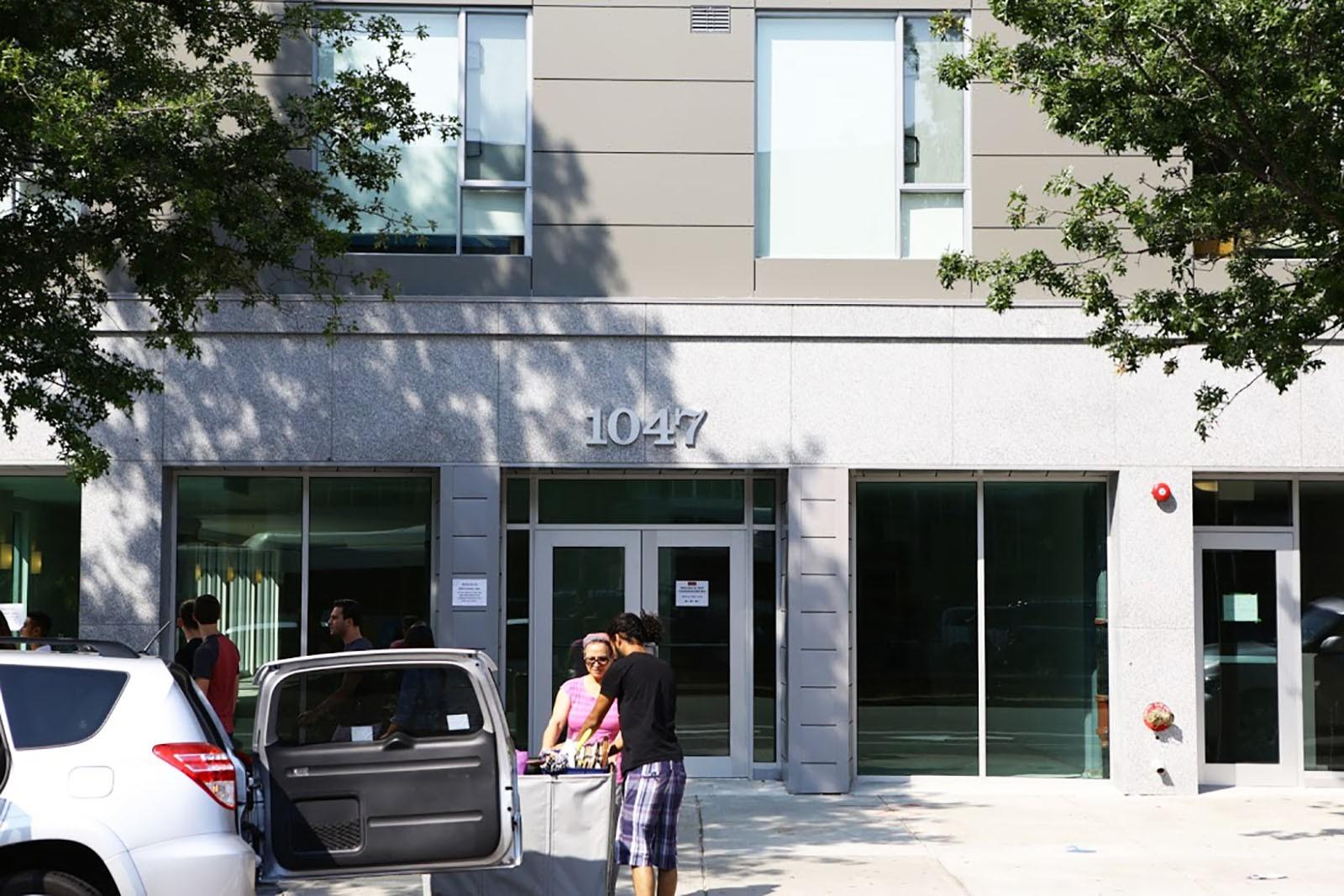Boston’s first micro-unit apartment come to Commonwealth Avenue and is now part of Boston University’s campus, though only for a short period of time. Due to the renovations to Myles Standish Hall and Myles Annex, the university entered a two-year contract with developers to let students reside in the micro-apartments at 1047 Commonwealth Ave. until the renovation is done.
The apartments will be advertised as single units when the contract with BU is up. Right now, each unit currently houses two students, providing them with stainless steel kitchen appliances, laundry facilities and a bathroom within the unit. All of that is contained within approximately 350 square feet to ensure efficiency. Students who live there have said that though the space is tight, there are no complaints about the brand new accoutrements.
The new apartment has many wondering if micro-units are the solution for Boston’s housing market. Even though Massachusetts was ranked as the number one state by U.S. News and World Report, Boston housing prices are still extremely high. According to a segment from WBUR, economists have claimed that these micro-units are the only long-term solution to lower the housing costs in the city.
The micro-units in 1047 Commonwealth Ave. make the most out of a small space. They’re great for the college student who doesn’t want to move off-campus but still wants the convenience of a kitchen and live-in laundry units. The space fits a lot, though it would be more ideal for one person rather than two. These complexes could be beneficial for the housing market as they are so efficient and could fit many apartments into one building, creating housing for many within Boston proper. However, this is assuming that the prices correspond to the actual size of the rooms. As the “test run” campus for these units, BU students know better than anyone that this one room would be your entire life. If Boston expects tenants to live in these apartments, they would have to keep prices low. The benefits only exist provided that the costs are reasonable.
Allston, Brookline and Cambridge are practically run by student populations. From Babcock Street to Harvard Avenue, students from more than just BU reside in single or multifamily homes lining the streets of “Rat City.” Brookline, though a more expensive option, has its fair share of upperclassmen who decided the dorms didn’t cut it. Could micro-apartments be a worthy alternative? They have the potential to give these neighborhoods back to the families who have complained that their evenings are disrupted by house parties. If the city prioritizes these micro-apartments to appeal to college students over the bigger, dirtier houses in Allston, that would allow working class families to stay and grow within the neighborhood.
The main issue with micro-units, other than their small size, is that they only interest a very small amount of Boston’s population. While college students and post-graduates could be interested in renting these studios, this isn’t a long-term solution. These apartments are designed for one person, and for those who want their own space, it is the perfect option. However, families who need a place to live won’t be looking at micro-apartments. College students looking to room with their friends won’t first turn toward single units. They’re a sort of starter home, not a place to settle down.
It is interesting to compare the cities of Boston and New York City, especially in terms of housing. New York is condensed onto a single island, forcing an extremely large amount of people to squeeze into not a lot of space. This leads to four or five people sharing an apartment meant for half that many. In New York City, perhaps these micro-apartments would be of better use to meet the needs of a lot of apartments that don’t take up a lot of space.
However, Boston is entirely different. Though the prices of Boston proper are soaring, there are plans in the works for many surrounding neighborhoods to lower the cost of living. Having an option for cheaper housing within the heart of Boston would be ideal, but micro-units are not the long term solution for all.






















































































































